Fr. Stephen Huffstetter, general councilor, is visiting with SCJs in Bahía de Caráquez, Ecuador, one of the areas hardest hit by the April 26 earthquake. He writes:
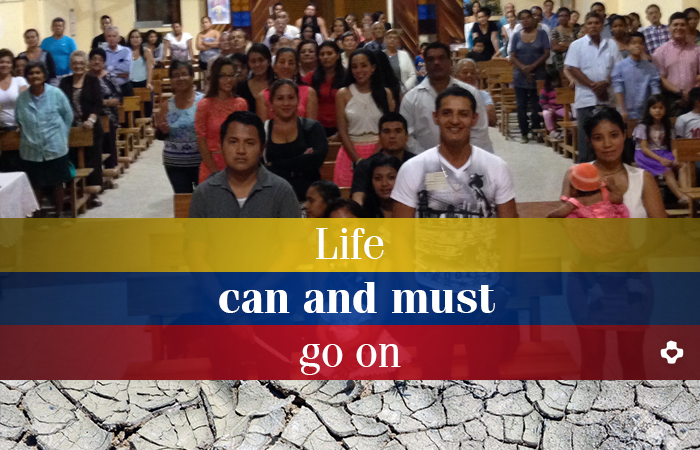
I celebrated weekend Masses in San Jorge parish. The SCJs invited me to preside, while they preached. I did say a few words about how our prayers and thoughts have been with them since the earthquake. My hope and prayer is that times of trouble and disaster can also be times of charity and solidarity with one another. The liturgies had lively music and participation. One Mass include two baptisms. At the children’s liturgy, we encountered enthusiastic singing and hand clapping. Ecuadoran culture is very affectionate, with lots of hugs and greetings. Many people line up after Mass for an extra, individual blessing and a few words of encouragement from their pastors.
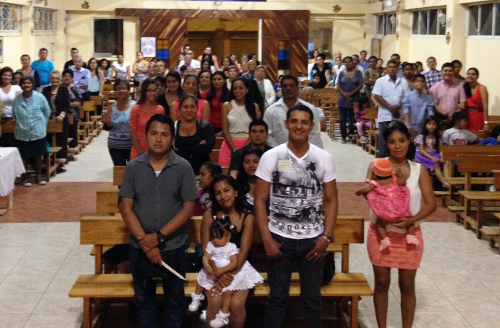
I observed catechism class La Virgen de Merced parish. The parish has an active Caritas group that reaches out to those in need with social projects, and they have been incredibly busy this year. Fr. Bruno honored the parish secretary for 21 years (and counting) of her service at Merced.
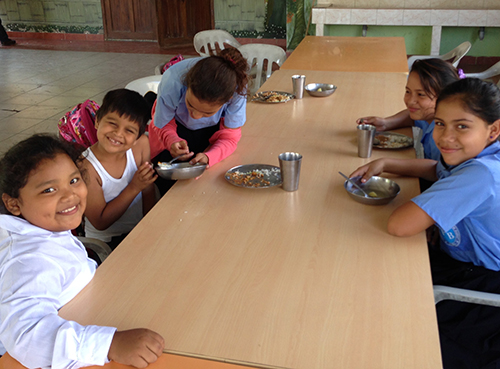
An ongoing project are the parish soup kitchens – “comedores.” In one near Sagrado Corazón women prepare daily meals for area children. While absolute hunger is not an issue in this agricultural region, good nutrition is, and they are able to provide nutritious meals to supplement what is lacking.
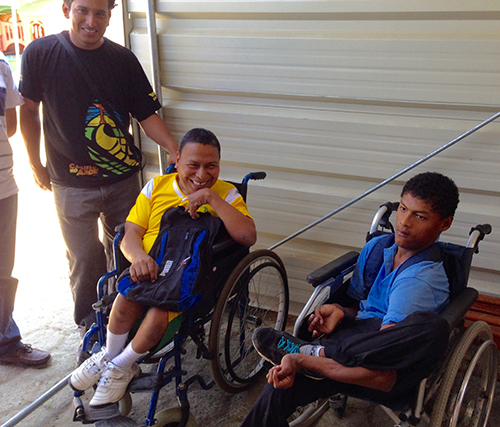
Talitha Kum, (from the biblical stand and walk) provides classes and care for children with physical or mental developmental disabilities. We talked to youth confined to wheelchairs, and others with Down’s Syndrome or Autism. The tiny metal sheds serving as classrooms didn’t seem like a lot, but the love and care inside was noticeable, and that makes all the difference.
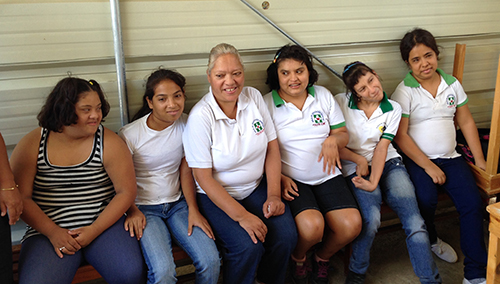
José Luis Ángel, who teaches finance at ESIC in Madrid, was in town to meet with those who have received one-year, no interest, microcredit loans. While the 60 people who benefit from the program in Quito were mostly women running start-up cottage industries, here in Bahía the loans go to 90 farmers who need upfront money for basics like seed and fertilizer, or even to pay rent on land they can farm. The program hopes to help them establish credit with regular banks. “Orbayu” started with seed money from an insurance company and its employees who wanted to do something concrete in the area of Corporate Social Responsibility. The word “Orbayu” signifies a lasting, slow and steady drizzle which may not seem like much at first, but as time goes on, soaks the ground and produces much growth. A little money in the right place at the right time goes a long way. For more information on these microcredit initiatives, go to http://www.orbayu.org/
One night we enjoyed supper with the Visitation Sisters, who have moved into the SCJs’ Dormus Cordi house after their convent walls crumbled. Dormus Cordi normally serves as a center for youth ministry. I was disappointed that much of that ministry is on hold until the fall, and I hope to see and learn more about it on my next visit.
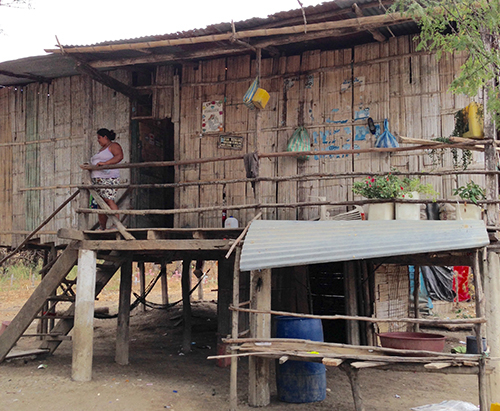
Fr. Bruno loaded up a truck of supplies for the countryside (campo) communities. We traveled dirt and gravel roads, as rugged as any I knew from my rural South Dakota reservation days. We dropped off tables and tiny chairs to help a pre-school program. We delivered a bed and mattress to a 95-year-old elder in the community. His home was made of traditional wood, on stilts to keep cool air flowing underneath and to minimize the critters that can get in. Newspapers glued over the cracks kept the wind down. It was a simple home about 30 x 30 square feet divided into four rooms. They had no running water. The hospitality was great as we were greeted with a quarter of a watermelon apiece, warm hugs and a huge smile.
In Santa María the small chapel that serves the 50 families in the area was next to a one-room school house, in session. There were 19 children studying. One girl was late (chronically) because she has to walk six kilometers (a little under four miles) each way to school every day. Near the community of Pajonal we walked along the oceanfront, quite beautiful and undeveloped. People here worry about large conglomerates buying large tracts of land and privatizing the beaches.
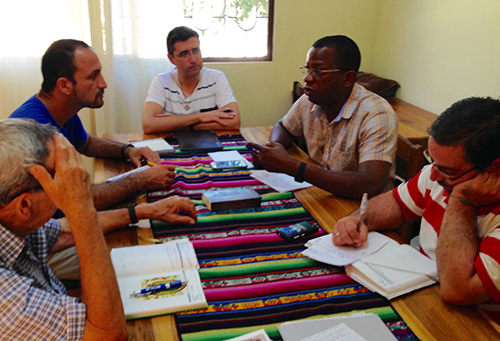
Besides my meetings with individual SCJs, the community as a whole met to discuss the General Council’s six-year plan. They inquired about our SCJ confreres and projects throughout the world. Ready to contribute what they can to the Congregation as a whole, they asked what the General Superior hopes from them. Again, I heard their desire to promote the district to other SCJs who may be willing to join their ministry.


